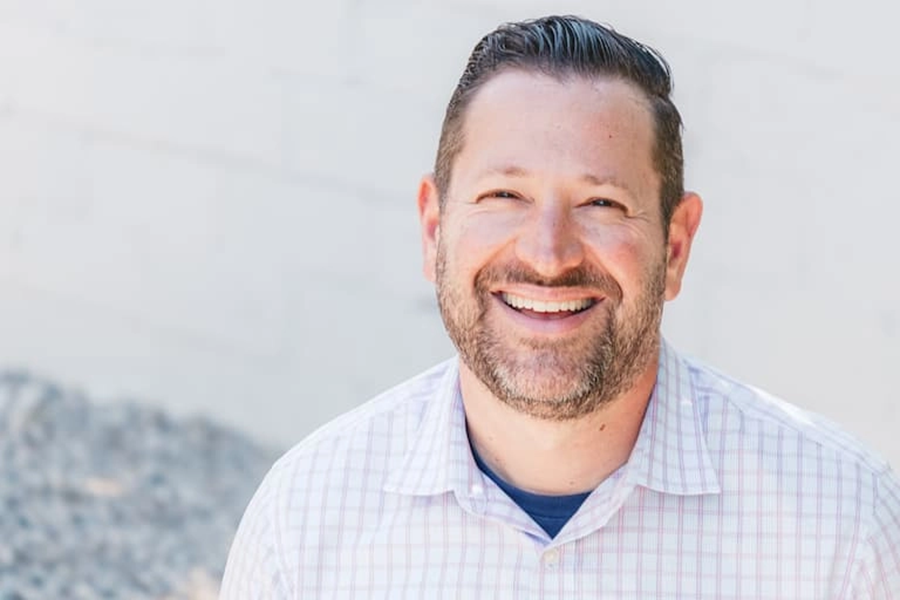Ok, so you took all the classes, worked for free (clinical), and paid a bunch of money. You have taken your LAST X-Ray tech school exam and are now ready to sit for the ARRT® Radiography Certification Exam. If you are human, you are now probably freaking out on the inside! I mean, what if you fail? How could you ever face your friends or classmates? Ok, it’s not that big of a deal, many students have to retake their ARRT® Certification Exam, and at the end of the day, the only thing you are out of is time and money.
You've completed all the required classes, worked unpaid in clinical settings, and invested a significant amount of money. Now, after taking your final X-ray tech school exam, you're ready to sit for the ARRT® Radiography Registry Exam. If you're like most people, you might be feeling anxious right now. What if you fail? How would you face your friends and classmates? It's important to remember that it's not the end of the world. Many students end up retaking their Registry Exam, and in the grand scheme of things, the only things lost are time and money.
Here at Clover Learning, we take radiography education seriously. That is why we built the industry's best radiography training and ARRT® certification exam prep courses, Qbanks, and mock exams!
Just like you, I was once a radiography student facing the same fears and anxieties that you may be experiencing right now. I remember the countless hours I devoted to studying, pouring over textbooks, notes, and mock exams (I really wish I had something like Clover Learning back then!). After all that hard work, I passed my certification exam on the first attempt. To be honest, it was a lot less challenging than I had anticipated.
My goal for this blog post is to provide strategies and information that, if followed, will likely help you pass your ARRT® Registry Exam.
Step 1: Stop FREAKING OUT!
I want you to take a deep breath and remember that while it may feel like this moment is the most significant one in your life, it's important to put things in perspective. This is just a test, and even if things don't go as planned and you don't pass the radiography exam on your first try, it's okay! You have the opportunity to reschedule and take it again. The American Registry of Radiographic Technologists (ARRT®) allows you to attempt the radiography certification exam up to three times. While I hope it doesn't come to that, it's reassuring to know that you have multiple chances to succeed. You've got this!
Stress decreases your memory.
An article by the NeuroHealth Association titled "12 Effects of Chronic Stress on Your Brain" discusses how stress affects the brain. It explains that stress increases cortisol levels, which can impair working memory when overproduced. Stress also lowers neurotransmitters like dopamine and serotonin, which are essential for happiness, and low levels of these can lead to clinical depression.
To reduce stress, I recommend putting things into perspective. Remember, THIS IS JUST A TEST! Even if you don't pass on the first try, you still have people who love and support you. Since passing this test won't change those relationships, try not to see it as an insurmountable challenge.
Take a few deep breaths and think of the radiography certification exam as the final step in your training. You've come this far, so you are definitely capable of passing.
Step 2: Study smarter, not harder.
I have a little secret: A good deal of what is listed on the ARRT® Radiography Examination Content specifications is likely not going to appear on the Registry Exam. When I was preparing for my exam, I relied heavily on the prep books, online tests, and countless flashcards, believing that if I just memorized everything, I would surely pass. Although I did pass on my first attempt, there were still a lot of concepts, like the line-focus principle, that confused me.
Looking back, I realize that I could have saved a significant amount of time and possibly improved my score by spending less time on practice exams and more time building my knowledge and confidence in the topics and principles that challenged me. This insight inspired me to create Clover Learning. I found that mastering core concepts through short and engaging video lessons and quizzes not only leads to more efficient studying but greatly increases the likelihood of improving registry exam scores!
Why is this?
When you fully grasp a key concept, you unlock the ability to confidently identify correct and incorrect answers. With a deep understanding of core radiography concepts and principles, confusion starts to fade, and your anxiety and study time decrease significantly.
This is where our "secret sauce" sets us apart from all other exam prep resources on the market. We believe that learning should go beyond mere memorization. Our video lessons, quizzes, and exam prep tools are specifically designed to help you master the fundamentals. It's not just about testing what you already know; it's about empowering you with knowledge. Once you've mastered the key concepts, you'll be ready to test your understanding through custom and mock exams, paving the way for your success.
Step 3: Crap in, crap out.
You may have heard the saying, "You are what you eat," and I completely agree with it! We've all heard stories of individuals who go out the night before a big test to "have a few drinks," only to wake up with a massive hangover the next morning. I have even heard of people doing this before their radiography certification exam! While it's not my place to judge anyone, I can't help but wonder: after all the hard work, time, and money you've invested in your education, couldn't you wait just one more night?
This advice goes beyond just avoiding alcohol; it also includes steering clear of foods high in sugar (such as sugary soft drinks), fried foods, sugar substitutes, and heavily processed items (like fried chips, fast food, and candy). Consuming these types of foods can lead to a condition known as brain inflammation or brain fog. Brain fog can be described as those moments when your thoughts feel muddled, like when you're trying to remember a word but just can't seem to recall it.
For optimal results, don't just start cleaning up your diet the night before the big test. Instead, aim to make healthier choices for a month or, at the very least, a week prior to the exam.
Here are some recommendations for foods that actually make you smarter.
- Lean beef
- Green leafy vegetables (spinach, kale, swiss chard, romaine lettuce)
- Avocados
- Blueberries
- Broccoli
- Coconut Oil
- High-quality eggs
- Extra Virgin Olive Oil
- Seeds and nuts
Step 4: Get plenty of sleep
This is an important topic. With today's distractions like social media, YouTube, and Netflix, it's easy to lose track of time and get less than 7-8 hours of sleep per night. Research shows that sleep is crucial for memory retention.
Focusing on a better diet can help those who are unable to get enough sleep. For everyone else, maintaining a consistent bedtime is key. I personally aim to sleep between 10:00 PM and 10:10 PM, which allows me to wake up refreshed at 6:00 AM.
Especially before your certification exam, try to get 7-8 hours of sleep. After just a few good nights, your brain will work more effectively, and you may surprise yourself with what you can recall!
Step 5: Believe in yourself
In this final step, take a moment for a heart check. You've come so far, enduring challenging situations with unhelpful techs at your clinical site, passing all your school tests, and putting your life on hold for your radiography education. You can do this! Even if you're not the most confident test taker, reflect on all your achievements so far and start believing in your ability to succeed!

